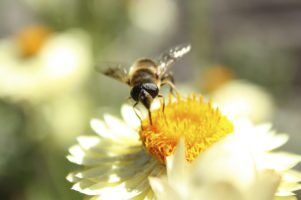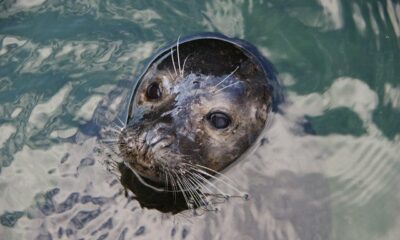

Environment
Friends Of The Earth React To Link Between Neonicotinoid Insecticides And Wild Bee Decline
Paul De Zylva, Friends of the Earth’s nature campaigner, has responded to research published today in Nature Communications, linking neonicotinoid insecticides to wild bee decline across England with the following statements :
“This is the strongest ever evidence of harm to bees from neonicotinoid pesticides in British fields.
“The study uses data from real field conditions over 17 years and adds a huge new peak to the existing mountain of evidence showing the risk these chemicals pose to our bees.
“If the government genuinely wants to safeguard Britain’s bees, it must keep the ban on neonicotinoid pesticides regardless of what happens with Brexit – and tighten the way pesticides are tested and licensed for use.”
Friends of the Earth is also calling for a greater variety of bee-friendly crops and plants in our countryside. Paul de Zylva said:
Bees are no different from us in needing a healthy, balanced diet. To get this bees need to visit lots of pesticide-free plants – endless fields of oil seed rape are failing to provide this.
The Centre for Ecology and Hydrology (CEH) which conducted the study said that the results show that:
• Use of neonicotinoid pesticides “is a contributory factor leading to wild bee species population decline” and that their use on oil-seed rape crops is a “principle mechanism of neonicotinoid exposure among wild bee communities”
• Neonicotinoid-treated oil-seed rape is a “principle mechanism of neonicotinoid exposure among wild bee communities” and for some vulnerable species of wild bees, the use of neonicotinoid pesticides on crops “was equivalent to at least 20% of local population extinctions…”;
• Neonicotinoid use is correlated with wild bee biodiversity losses at a national scale and has implications for the conservation of bee communities in intensively farmed landscapes
• The benefit to bees of feeding on oil-seed rape is “more than nullified by the effect of neonicotinoid seed treatment on a range of wild bee species” and bee decline is “on average, three times stronger” in bee species that regularly feed on treated oil-seed rape than in species that feed on a wider range of flowering plants.
Renewable energy investment fund, Low Carbon, have also commented with the following :
“These figures from the NERC Centre for Ecology and Hydrology highlight the national crisis that the UK is facing. Honeybee populations have halved in the UK over the last two decades due to factors such as climate change, mites, pesticides, and the number of beekeepers which has been declining since the 1970s. Such factors not only endanger the honeybee species, but also the entire biodiversity levels of the UK, and this is a threat that should not be underestimated. Through taking small, measurable steps, individuals and businesses can play their part in protecting our honeybee population. From encouraging wild flowers to grow in gardens or installing bee hives on suitable premises, every little helps when it comes to conservation. At Low Carbon, our solar parks are home to more than 2 million bees, living in beehives installed by and managed our partner Plan Bee. Encouraging biodiversity should not be a bolt on for renewable energy companies, but rather a core responsibility. Protecting bees, insects and other species is a crucial part in the fight against climate change and we’re excited to be at the forefront in protecting Britain’s bees.”


 Environment12 months ago
Environment12 months agoAre Polymer Banknotes: an Eco-Friendly Trend or a Groundswell?

 Features11 months ago
Features11 months agoEco-Friendly Cryptocurrencies: Sustainable Investment Choices

 Features12 months ago
Features12 months agoEco-Friendly Crypto Traders Must Find the Right Exchange

 Energy11 months ago
Energy11 months agoThe Growing Role of Solar Panels in Ireland’s Energy Future




























